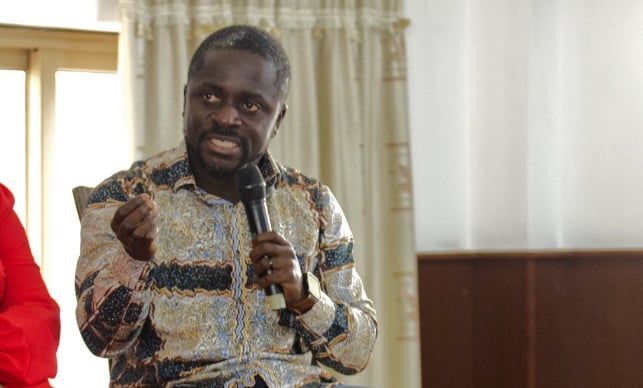Kwaku Krobea Asante, a Senior Programme Officer at the Media Foundation for West Africa (MFWA), has articulated a powerful message regarding the role of journalists in holding the influential accountable. Speaking during the launch of the Private Newspaper and Online News Publishers Association of Ghana (PRINPAG) Code of Ethics in Accra on October 17, he underscored that neutrality is not a valid stance for journalists when confronting powerful figures or institutions about their wrongdoings. He asserted that journalists operate within a societal framework governed by various power structures that necessitate scrutiny and accountability. Asante posited that a journalist is inherently obligated to advocate for justice and truth, especially when faced with instances of injustice or abuse of power, suggesting that maintaining objectivity does not allow for an absence of moral accountability.
Asante emphasized the importance of ethical standards in the practice of journalism. While journalists should strive for objectivity in reporting facts, he argued that the pursuit of neutrality can sometimes hinder their role as watchdogs of the society. He explained that failing to call out wrongdoing, simply for the sake of neutrality, may contribute to a culture of impunity among those in power. Therefore, journalists must prioritize their responsibility to report wrongdoings rather than ensconce themselves in impartiality which could be perceived as complicity. As such, Asante encouraged journalists to maintain ethical rigor, asserting that sticking to these principles helps shield them against external pressures and potential backlash, reinforcing the notion that ethics serve as a protective mechanism in their line of work.
The launch of the PRINPAG Code of Ethics was a critical juncture for journalism in Ghana, particularly given the current landscape marked by rampant misinformation and heightened scrutiny of the media’s role. This code serves as a framework aimed at addressing the myriad ethical dilemmas faced by media professionals today. Asante indicated that the guidelines encapsulated within the code are meant to bolster the quality and integrity of journalism in Ghana. By establishing a baseline of ethical behavior, the code aims to guide journalists in their reporting practices, ensuring they uphold their responsibilities to the public while navigating the complexities of modern media.
Furthermore, Asante pointed out that journalists are not isolated entities; their work is deeply intertwined with the societal and political contexts in which they operate. He highlighted the importance of recognizing the power dynamics at play and the responsibility journalists have to challenge injustice. By adhering to ethical journalism, reporters are more equipped to hold those in power accountable. He reiterated that journalism’s primary role is to act as a pillar of democracy by fostering informed citizens through accurate and responsible reporting. In an era where the spread of misinformation is pervasive, the need for robust journalism has never been more urgent, and ethical guidelines play a crucial role in sustaining journalistic integrity.
Moreover, the importance of storytelling and the ethical implications that accompany it were central to Asante’s message. He articulated that how journalists approach narratives can significantly impact public perception and society as a whole. He urged journalists to be vigilant in their reporting choices and to recognize the weight of their influence. In light of the challenges posed by fake news and misinformation, the ethical code provides a necessary framework for journalists to navigate these treacherous waters, ensuring their reporting promotes truth and accountability rather than sensationalism or bias.
In conclusion, Kwaku Krobea Asante’s address during the PRINPAG Code of Ethics launch serves as a clarion call for journalists in Ghana to embrace their ethical responsibilities and subvert the inclination towards neutrality in the face of wrongdoing. By remaining true to ethical principles, journalists can effectively contribute to a just society, ensuring that power is held accountable and that the public is well-informed. As Ghana navigates the complexities of modern journalism amid the dual challenges of misinformation and external pressures, the adoption of the PRINPAG Code of Ethics is a significant step towards enhancing the standards and integrity of journalism across the nation.














